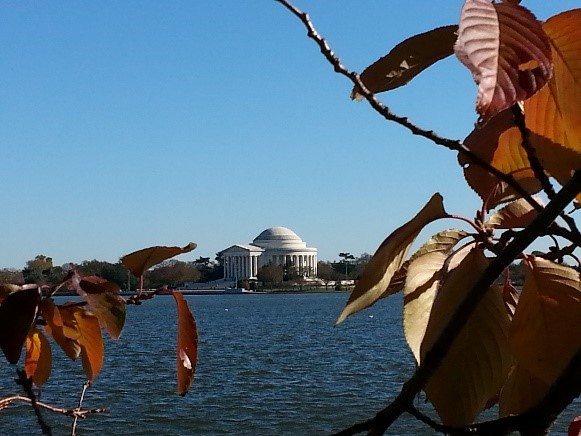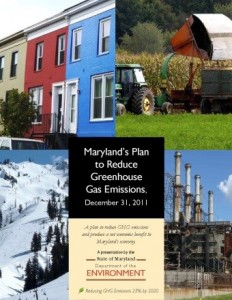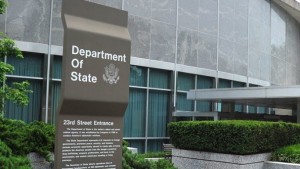
Labor Day is a time of transition. On the East Coast, heat and humidity are replaced slowly with cool breezes and longer shadows as the days get noticeably shorter. Vacations end. Work and school begins again. It is a time to reflect on the fun and adventure of another summer gone by.
For me, it was also a time for self-reflection. Not necessarily in looking back on a summer filled with relaxation, but in the experience and knowledge I gained interning at the Center for Climate and Energy Solutions (C2ES).
A Summer of Learning

My internship – I was the Science and Impacts Intern – began on June 8th. Right out of the gate I was assigned three tasks: write a climate change hiatus blog, update the C2ES Extreme Weather webpage, and begin an economic analysis of the cost of climate inaction for the state of Maryland. Quite a task list for the first week of work!
As weeks went by, the task list grew. One blog post turned into three. The economic data analysis combined with a climate data analysis to turn into a robust report for the Maryland Department of the Environment. There was also an additional policy brief culminating in the analysis of leading states on climate change action.
Last week, I received an email from a former colleague at C2ES: all reports on the Maryland Cost of Climate Inaction study will soon be published, and the material presented to the Maryland Department of the Environment will be referenced in a synthesis report. A proud moment, indeed!
Reflections
I am a meteorologist changing careers. My undergraduate courses were devoid of economics and policy. Everything outside the realm of physical science was new: econometrics, policy analysis, non-technical writing techniques. My work on these successful projects would not have been possible without the concepts and skills I gained during my first year at Bard CEP. Let me explain.
Econometrics – Analyzing the cost of climate change inaction meant having an understanding of probability distributions, confidence intervals, and median values. But more importantly, it meant presenting the data in a manner easily understood by any audience.
Policy Analysis – The Maryland Cost of Climate Inaction report included a list of policy recommendations identified as successful policy actions from other states that could be implemented in Maryland. This required sifting through countless policy briefs from various state agencies, pulling out relevant information, and synthesizing this information into two- to three-page policy memos for each state analyzed.
Communication Skills – Clear communication is the lifeblood of the NGO. Blogs, infographics, and reports are all effective methods of delivering your message. But you must know your audience. This was crucial for the Maryland Cost of Inaction report, a report seen by numerous committee members with a myriad of backgrounds and skills. To be effective, and to increase the likelihood that our analysis would be referenced in the state synthesis report, the report had to reach multiple audiences. Before the final version, this report went through rounds of editing and proofing by C2ES staff.
Teamwork – The biggest take away from this internship: teamwork makes a good thing great. It is intimidating to walk into an office filled with such highly-knowledgeable staff. But soon you realize that everyone has strengths and weaknesses in their knowledge base and must work together to reach a common goal. Then you are tasked with projects and asked to join meetings, and it isn’t long before you feel less like an intern and more like an integral part of the team. Again, the Maryland Cost of Inaction report illustrates this. Six people in three departments worked on this report, not even counting the senior staff and communications staff that helped edit it.
Moving On
Between the blogs and reports, my time at C2ES flew by. It was not all work, though. I did manage to make time for talks with fellow staff over coffee attend a few conferences. After all, networking is an aspect of the internship experience.
As seasons transition, I have also moved on to a new internship. I am now at the State

Department, working in the Office of the Special Envoy for Climate Change (SECC). It is completely different from C2ES.
I am lucky to have had this initial experience helping shape climate policy on a state level. Now I can continue to develop my skills helping a team dedicated to shaping national climate policy and making the world a cleaner, greener, and healthier place.I am applying those skills learned at Bard CEP and my first internship at a fast-paced office where staffers work feverishly to compile and analyze data and policies necessary to best represent the United States at the next round of climate change negotiations in Paris.
